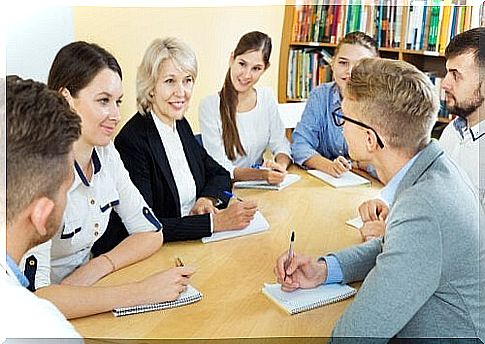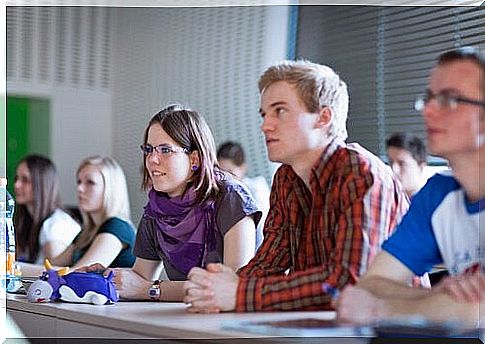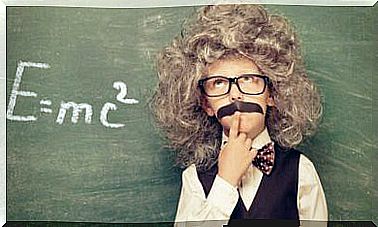The Relationship Between Education And Political Beliefs

These days it’s a lot about something called “political education.” This refers to the influence our schools and educational institutions have on students’ political beliefs. One of the theoretical goals of education is to make children politically active citizens. However, just how closely are education and political beliefs linked?
In this article we focus on the effect that education has on political life. Education, of course, involves much more than just academia. However, this is an important aspect to keep in mind. The ‘political effects’ we look at in this article are: political involvement, political attitude and political knowledge.
We’ll look at these effects through three lenses. These lenses are: (a) external variables influencing education and political beliefs, (b) direct variables, and (c) indirect variables.
External Variables Affecting Education and Political Beliefs
Statistically speaking, when we talk about external, modulating or third variables, we are talking about the external factor that links two variables together. For example, there is a correlation between the number of hospitals and prisons in a city.
It is a statistical fact that cities with more hospitals also have more prisons. However, this relationship comes from a third variable that affects both others: population.
When it comes to education and political beliefs, there are some external things that affect both variables. This also partly explains the connection between the two. There are several, but these are the most important: cognitive skills, personality and socio-economic background.

Cognitive skills
The link with cognitive skills is quite obvious. Having a high degree of verbal expression, abstract reasoning skills and a good memory will help you progress in formal education as well as further develop your political capacity.
However, cognitive skills that run counter to the educational system in which you develop them are a source of weak political understanding.
Personality
As far as a person’s personality is concerned, it is important to understand that certain attitudes can influence the way he receives education and the political beliefs he develops. For example, an ability to learn, be curious, and explore is linked to higher academic achievement and greater political understanding.
Socio-economic background
Another important aspect is the socio-economic background. This is because both political life and formal education have social constraints. There are plenty of people who can’t go to college because they just can’t afford it.
In the same vein, people of lower socio-economic status generally spend less time on politics. Sometimes it’s because they’ve been pushed out right away. In other cases, however, it is because they spend most of their time simply trying to survive in unstable working conditions.
Direct variables in education that influence political beliefs
There are many different forms of formal education. Apparently , these differences in education lead to differences in what we call ‘political understanding’. This also proves that the two variables are directly related. However, what are the specific factors that influence this relationship? The most important are curriculum content and educational values.
The content of the curriculum
Curriculum content can directly influence the political knowledge students acquire. It is quite obvious that it helps to teach students explicit political concepts and then create citizens who have better political analysis skills.
In addition, the type of content also greatly influences students’ political affiliations. In other words, political education that focuses on the benefits of liberalism is also likely to shape people who identify more with those ideas.
Educational Values
It is essential to educate students in values based on dialogue, debate and critical thinking. It is the best way to help them develop their own political attitude. There is therefore a strong link between schools based on these principles and students involved in politics.
However, if students receive narrow-minded and hierarchical education, chances are they will become accustomed to dogma and authority. After all, these are principles that always run counter to a critical attitude towards politics.
Indirect variables linking education and political beliefs
Chances are that a person’s level of education determines several parts of their life. There is usually a big difference between someone who starts working right after high school and someone who gets his PhD first. Many of these differences in education also play a role when it comes to people’s political attitudes.
The main indirect variables linking education and political beliefs are social position, self-image and opportunity.
Social position
Within society, your level of education usually places you ‘above’ and ‘below’ certain people. This happens because our society holds a lot of stereotypes that make us view people differently based on the education they have received.
What is especially important in this case is that the higher your education level, the more political influence (if other variables are the same) you will have.

Self image
Everything you pick up during your academic life also plays a role in how you see yourself. Your self-image puts you in the same category as other people with a similar level of education. It also happens that people with higher education are more socially accepted when it comes to politics.
Opportunities
Finally, a high level of education usually also means that you have more opportunities. In principle, if you have more opportunities in life, you will also have more chance of doing something related to politics.
You can look at the relationship between education and political beliefs in several ways. However, all these ways provide us with information that is fundamental to ensure that we train politically active and highly competent people.
The first thing we could take into account is that there are no social or economic constraints in relation to politics. This increases the likelihood that our political systems will be more representative, and that makes it easier to do things that are good for the general sense of well-being.









